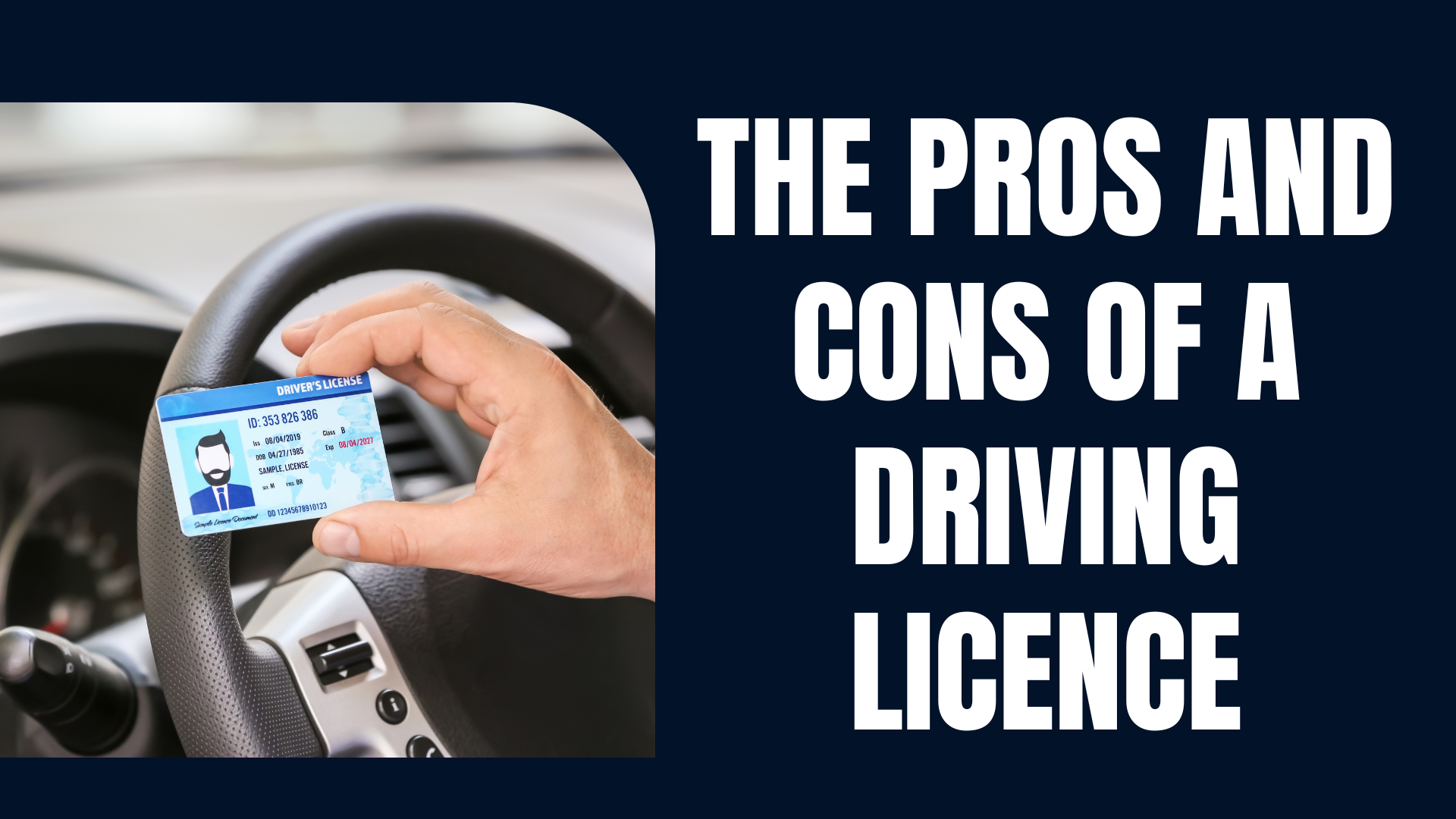Introduction:
A driving licence is a legal document that allows individuals to operate a motor vehicle on public roads. It serves as proof of competency and knowledge of traffic laws and regulations. While obtaining a driving licence can offer numerous advantages, it also comes with its fair share of drawbacks. In this article, we will explore the pros and cons of having a driving licence.
Pros of a Driving Licence:
Independence and Mobility:
One of the primary benefits of having a driving licence is the freedom and convenience it provides. With a licence, individuals can travel independently, go on road trips, and easily commute to work or school without relying on public transportation schedules.
Job Opportunities:
Many professions require a valid driving licence as a prerequisite. Having a licence can open up employment opportunities in fields such as delivery services, truck driving, and transportation industries. It can also enhance your chances of landing jobs that involve frequent travel.
Emergencies and Urgent Situations:
A driving licence can be invaluable during emergencies or urgent situations. It allows you to swiftly transport yourself or others to hospitals, handle unexpected events, or evacuate during natural disasters. Having a licence ensures that you are prepared to respond effectively in critical times.
Convenience for Daily Tasks:
With a driving licence, everyday tasks become more convenient. Whether it’s going grocery shopping, running errands, or picking up children from school, having the ability to drive saves time and simplifies daily routines.
Cons of a Driving Licence:
Cost and Maintenance:
Obtaining and maintaining a driving licence can be costly. Expenses include driver’s education courses, licensing fees, vehicle insurance, fuel costs, and maintenance. Additionally, drivers must keep up with regular vehicle inspections and repairs to ensure their safety and compliance with regulations.
Environmental Impact:
Driving contributes to air pollution and greenhouse gas emissions, leading to environmental concerns. Increased reliance on personal vehicles can exacerbate traffic congestion and carbon footprint, negatively impacting the environment and public health.
Safety Risks:
Operating a vehicle comes with inherent risks. Inexperienced or reckless drivers pose dangers to themselves and others on the road. Accidents can result in severe injuries or even fatalities. It is crucial to prioritize road safety and adhere to traffic rules and regulations.
Legal Consequences:
Having a driving licence means being accountable for one’s actions on the road. Violations such as speeding, drunk driving, or reckless behavior can lead to fines, license suspension, or even imprisonment. It is essential to drive responsibly and adhere to traffic laws to avoid legal consequences.
Accessibility and Transportation Alternatives:
While having a driving licence can provide convenience, it’s essential to acknowledge that not everyone has access to a vehicle or the ability to obtain a licence. Reliance on personal vehicles can also limit transportation options for individuals who prefer or rely on public transportation, cycling, or walking. Considering alternative modes of transportation can help mitigate traffic congestion and reduce the environmental impact of driving.
Insurance and Financial Responsibility:
Holding a driving licence typically requires drivers to obtain vehicle insurance. Insurance coverage can protect against potential accidents, property damage, and medical expenses. However, insurance premiums can be costly, especially for inexperienced drivers or those with a history of traffic violations. It’s crucial to consider the financial responsibility that comes with owning and driving a vehicle.
Time and Effort for Licence Acquisition:
Obtaining a driving licence requires investing time and effort into learning the rules of the road, completing driver’s education courses, and passing both written and practical examinations. The process can be challenging for some individuals, and not everyone may have the resources or opportunity to pursue a licence. It’s important to consider the commitment required to obtain a licence before embarking on the journey.
Driving as a Skill:
While a driving licence demonstrates that an individual meets the minimum requirements to operate a vehicle legally, it does not guarantee mastery of driving skills. Experience and ongoing practice are crucial for becoming a safe and confident driver. New drivers, in particular, should continue to refine their skills through defensive driving courses and by seeking guidance from experienced drivers.
Cultural and Lifestyle Factors:
The necessity and desirability of a driving licence can vary depending on cultural norms and lifestyle choices. In urban areas with extensive public transportation systems, owning a car and having a licence may be less essential. Additionally, some individuals may choose alternative modes of transportation to reduce their carbon footprint or embrace a more active lifestyle.
Suggested Read- Driving Licence Renewal
Conclusion:
A driving licence offers numerous benefits, including independence, job opportunities, and the ability to handle emergencies efficiently. However, it also comes with financial costs, environmental concerns, safety risks, and legal responsibilities. As aspiring or existing drivers, it is important to weigh these pros and cons carefully, prioritize safety and responsible driving, and be mindful of the impact our driving habits have on ourselves and the world around us.
